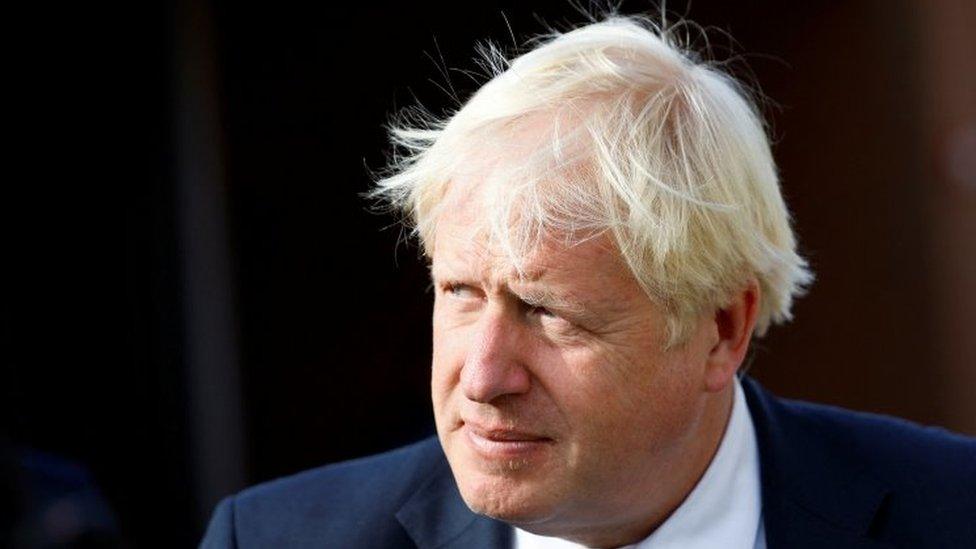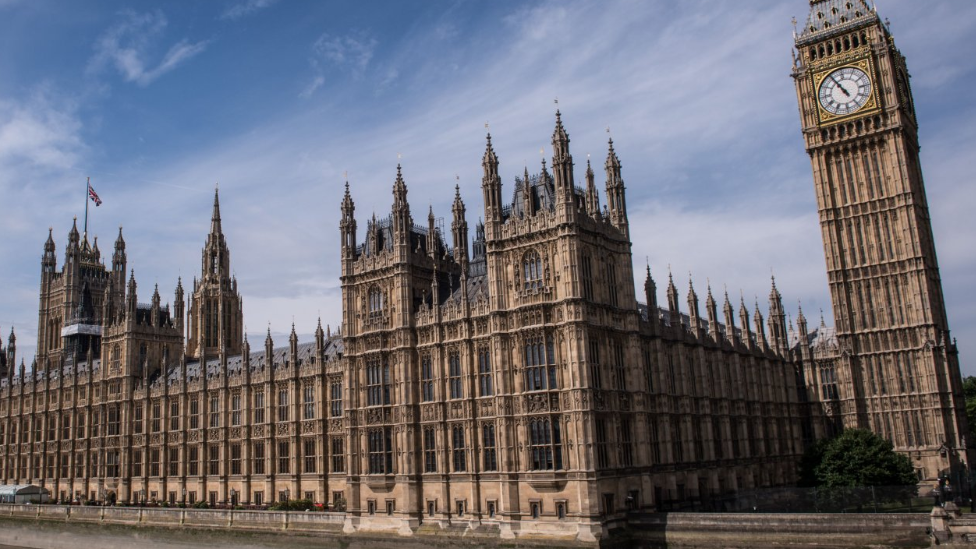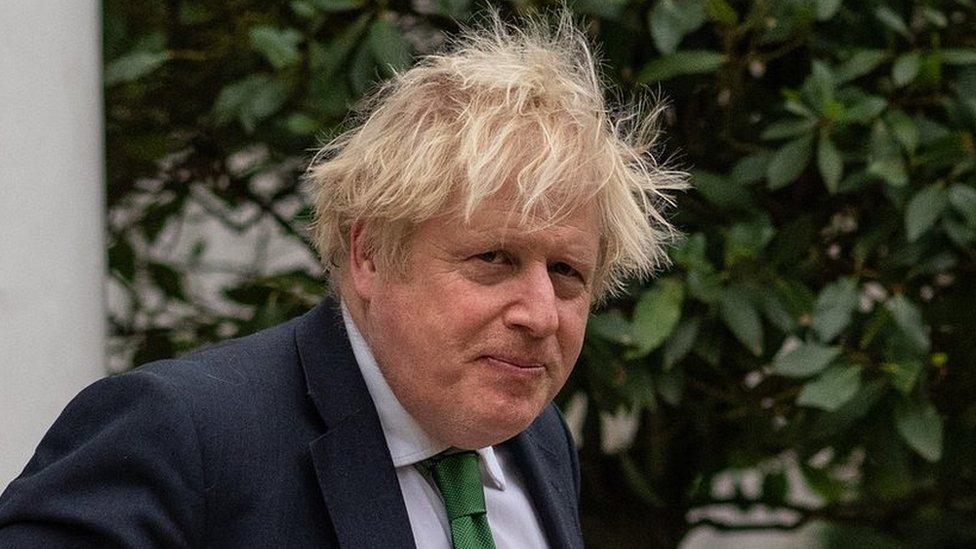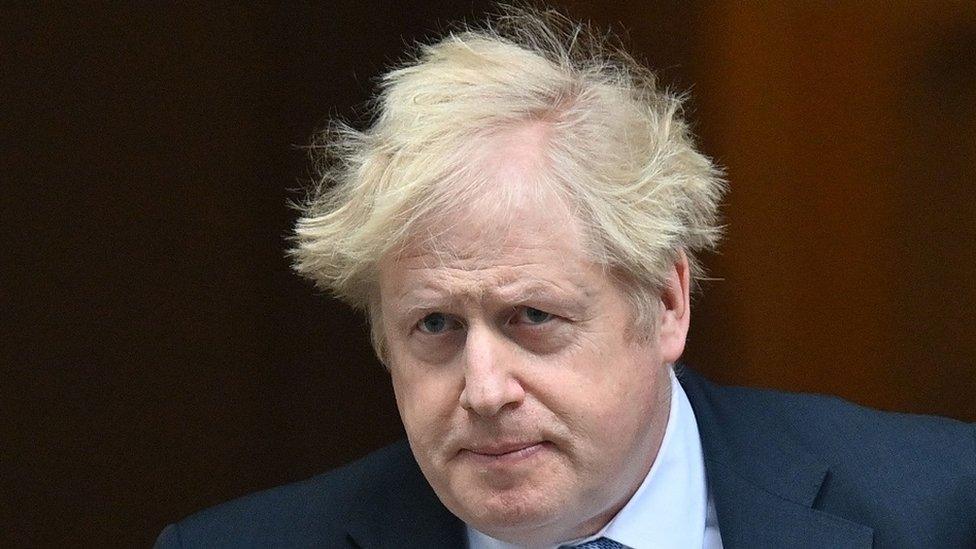Boris Johnson: What could happen after Partygate hearing?
- Published

Former Prime Minister Boris Johnson resigned as prime minister last year
The former prime minister is facing a panel of MPs who are investigating accusations that he did not tell the truth to Parliament over Partygate.
Boris Johnson will be questioned by the Privileges Committee on Wednesday, about statements he made over Covid rule-breaking parties in Downing Street.
It is a significant moment for a political system, such as the UK's, that largely relies on trust to function.
It could also be a big moment for Boris Johnson personally and could cause some serious political fallout.
So what might happen?
Boris Johnson is completely cleared of misleading Parliament
Boris Johnson has accepted that some of his statements did mislead MPs, so this doesn't look like a likely outcome.
The committee will have to decide if the misleading statements amounted to a "contempt". Strictly speaking, that just means they had an impact on the functioning of Parliament.
They will, though, take into account what they think his intention was and how quickly he corrected the record.
If they decide he wasn't in contempt, there won't be any sanction.
Mr Johnson maintains that what he said in the Commons was what he honestly believed to be true at the time, external.
The committee has previously said it had gathered evidence which suggested it "would have been obvious" to him that Covid guidance had been broken.

The Privileges Committee released previously unseen images of Mr Johnson celebrating his birthday in Downing Street
Boris Johnson is found to have misled Parliament, is suspended and loses his seat
At the other end of the scale is the very worst case scenario for Mr Johnson.
Getting to this situation would take a LOT of stages.
Firstly, the committee would have to decide that Mr Johnson had not only misled Parliament but also that what he said had an impact on its "proper functioning". This would mean it was a "contempt".
They would also have to conclude that the contempt was so severe that they decide to recommend one of the most severe punishments available to them: suspension from Parliament for 10 sitting days or more.
That would trigger a recall petition. If 10% of eligible registered voters in his Uxbridge and South Ruislip signed the petition, his seat would be declared vacant and a by-election would be called.
An MP who is kicked out through this process is allowed to stand in any subsequent by-election to try to win the seat back.
There are a lot of "ifs" in this process though and it is unlikely to be something the Committee would do lightly.
Any punishment would have to be agreed by a vote of the whole House of Commons - and a sanction that endangers Mr Johnson's political future is likely to prove very controversial.
The committee does also have the power to recommend expulsion - kicking an MP out of Parliament without asking the local electorate. But that is very rarely used.
Boris Johnson is found to have misled Parliament but gets a different punishment
If the committee does find Mr Johnson was in contempt of Parliament they will take a view on how serious it was.
They will take into account what the impact was and whether they think Mr Johnson had done it inadvertently, recklessly or deliberately.
That will help them decide if he should face a sanction and what it should be.
Punishments could range from: asking him to make a written apology, making him apologise in person in the Commons, up to suspension.
Whatever the outcome, the hearing risks bringing tensions within the Conservative Party back to the surface.
Some of Mr Johnson's supporters already believe that launching the investigation was politically motivated so expect some backlash, whatever is decided.
It is also likely to raise fresh questions about how Parliament polices itself.
Related topics
- Published21 March 2023

- Published27 February 2023

- Published3 March 2023
